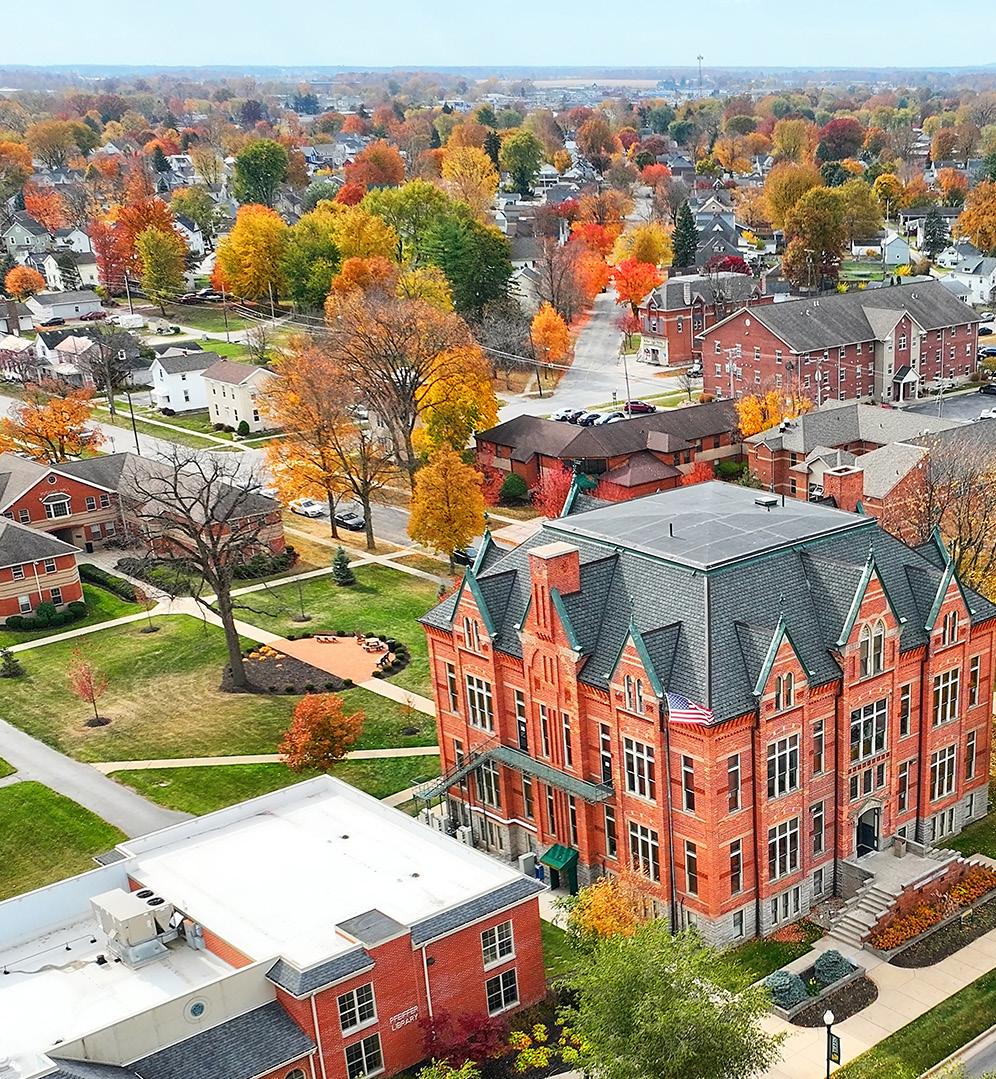ECONOMIC IMPACT STUDY





Tiffin University (TU) is an independent, private institution of higher education, chartered by the State of Ohio to award degrees at the associate, bachelor’s, master and doctorate level. Founded in 1888, Tiffin University is located in north-central Ohio, a 153-acre campus in Tiffin, Ohio that serves as a vibrant and warm home for a culturally diverse educational community. TU offers classes oncampus, online and in the countries of Romania and Switzerland, as well as Latin America.
Tiffin University’s programs are authorized by the Ohio Department of Higher Education and are accredited by the Higher Learning Commission (HLC), is one of the six regional accreditation bodies recognized by essentially all of the major public and private colleges and universities in America.
TU’s School of Business is accredited by the Accreditation Council for Business Schools and Programs (ACBSP). The ACBSP is a leading specialized accreditation body for business education supporting, celebrating and rewarding teaching excellence. Institutions with this accreditation are committed to continuous improvement that ensures their business program will give students the skills employers want.
Throughout history, TU has maintained its dedication to providing a professionally focused, learning-centered education to prepare students for successful careers and for productive and satisfying lives of excellence, leadership and service.
Top Programs: Business Management, Psychology: Human Services, Forensic Psychology, Exercise Science, Cyber Security and Computer Science
Degrees: Associate, Bachelor’s, Master’s and Doctorate
Budget: $42,131,536
Budget tuition and fees gross: $54,381,749
Budget tuition and fees net: $31,021,068
STUDENT ENROLLMENT
3,176 total student enrollment
TU SEATED ENROLLMENT
• Undergraduate - 1,354 students (approx. nine months on campus)
- On-campus - 825
- Commute - 529
- 250 commuters in Seneca County or nearby
• Graduate - 94 students (approx. nine months on campus)
TU ONLINE AND EXTENDED LEARNING
• Undergraduate - 722
• Graduate - 652
Non degree seeking - 354

Tiffin University’s living alumni - 14,746 Students employed or continuing education six months after graduation: 91%
Top Alumni Employers:
• Marathon
• Cuyahoga Community College
• Amazon
• Whirlpool Corporation
*per Live Alumni
• PNC
• Cleveland Clinic
• US Army
• Terra State Community College
Based on the survey, on average, an undergraduate student spends:
• $140 a month on groceries
• $84 a month at restaurants
• $330 a month on rent/utilities (for those who live off-campus)
• $40 a month on entertainment
• $34 a month on personal care
We can conclude that:
Number of full time faculty - 66
Number of staff - 186
• Walmart
• State of Ohio
• Progressive Insurance
Total salaries and benefits (from payroll) $23,284,527.26
Total paid to vendors in located in Seneca County $6,298,498.91
Based on the survey, on average, a graduate student spends:
• $712 a month on groceries
• $125 a month at restaurants
• $375 a month on rent/utilities (for those who live off-campus)
• $10 a month on entertainment
• $60 a month on personal care
• TU students spend a total of $4.165 million at local establishments.

• 50% of TU students have friends and family visit them in Tiffin. On average two to three people come 11 times a year and, on average, they stay for two days. A quarter of guests stay at local hotels for at least two nights a visit. Assuming three meals a day, at $20 each and at $120 a night at the local hotel, guests contribute at least $2.09 million to the local economy.
*Currently, available multipliers (multipliers that were used to calculate indirect and induced impacts) are for 2022.
• TU’s undergraduate students contribute 28,500 volunteer hours a year
• 100% of first-year students are involved in serving-learning projects
DIRECT
Impacts generated as a result of spending on operations, capital expenditures, pay and benefits, student spending and visitor spending.
INDIRECT
The increase in demand for goods and services in industry sectors that supply or support the University, the students and visitors. (Often referred to as the supply chain.)
INDUCED
The third wave of impact created as a result of household spending by TU employees, students and suppliers. Induced impacts estimate the effect of increased household income, including housing, household goods, entertainment, food, clothing, transportation and other categories of personal spending.
(Top 10 industries, based on total output impact)



